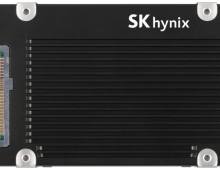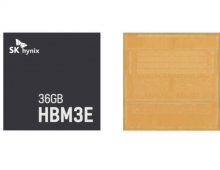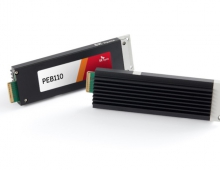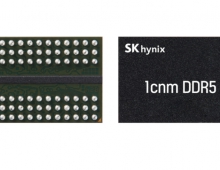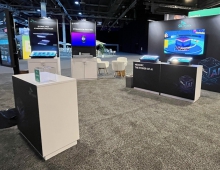
U.S. District Court Orders Hynix to Post Security for Infringing Rambus Patents
The U.S. District Court for the Northern District of
California has ordered Hynix Semiconductor to secure
the judgment amount of approximately $397 million
through a combination of a bond and a lien on a
Hynix property in South Korea for infringing Rambus
patents.
The bonded amount of $250M is required to be posted
within 45 days of the order. The lien will only
serve as security if a new appraisal of the Hynix
property shows a fair market value of at least
double the amount of the judgment not secured by the
bond. If the appraisal is inadequate, Rambus may ask
the Court to substitute other security.
Final judgment in this matter was entered against Hynix on March 10, 2009 in the amount of approximately $134M for infringement through December 31, 2005 and approximately $215M for its infringement from January 1, 2006 through January 31, 2009. In addition, the Court awarded about $48M in pre-judgment interest to Rambus.
"We fully expect the judgment against Hynix to be upheld on appeal, and that we will be entitled to collect the entire amount of the judgment," said Thomas Lavelle, senior vice president and general counsel at Rambus. "We appreciate the Court's thoughtful consideration in this case, however, we believe Hynix should have been required to post a bond for the entire amount of the judgment. If Hynix's proposed lien fails to show value of roughly $300 million, we will ask the Court for other security in order to protect Rambus' interests."
In addition, the Court ordered Hynix to pay compulsory license fees into escrow pending the outcome of the appeal Hynix filed in this matter. The Court ordered Hynix to pay Rambus royalties on net sales after January 31, 2009 and before April 18, 2010 of 1% for SDR SDRAM and 4.25% for DDR SDRAM memory devices. The latter rate applies to DDR, DDR2, DDR3, GDDR, gDDR2 and GDDR3 SDRAM devices, as well as DDR SGRAM devices. Damages and the compulsory license apply to U.S. infringements of the patent claims in suit.
"Hynix is pleased that Judge Whyte accepted our proposal regarding the bond and other security for the judgment in the Rambus case," Hynix said in a statement.
"Hynix will post the required security in accordance with the Courts order while we pursue our appeal to the United States Court of Appeals for the Federal Circuit. This ruling prevents Rambus from seeking to collect on its judgment while our appeal is pending. Our appeal raises the conflicting rulings from the Delaware and California courts on Rambuss destruction of evidence, and other key rulings on patent and antitrust issues," the company added.
This case was originally filed by Hynix against Rambus in August 2000. The Honorable Ronald M. Whyte of the U.S. District Court for the Northern District of California split the case into three separate phases with Rambus subsequently prevailing in all three phases. During the first phase, Hynix alleged that Rambus' patents were invalid based on the doctrine of unclean hands. The Court issued its Findings of Fact and Conclusions of Law in Rambus' favor in January 2006. The Court reaffirmed its finding of no spoliation when it denied Hynix's motion for reconsideration in February 2009.
The second phase dealt with Rambus' allegations that Hynix memory products infringed its patents. In April 2006, a jury unanimously found that all ten Rambus patent claims at issue in that trial are valid and infringed by Hynix memory products. The jury award of approximately $307M in damages for U.S. sales of infringing Hynix products through December 31, 2005, was subsequently reduced by the Court to approximately $134M.
In the third and final phase of the case, Hynix (together with Micron and Nanya) tried its remaining claims and defenses against Rambus including antitrust and fraud claims based on Rambus' participation in a standard-setting organization called JEDEC. In March 2008, a jury found Rambus had acted properly during its participation in JEDEC in the early 1990s. The Court similarly found in Rambus' favor in a decision issued on March 3, 2009.
Final judgment in this matter was entered against Hynix on March 10, 2009 in the amount of approximately $134M for infringement through December 31, 2005 and approximately $215M for its infringement from January 1, 2006 through January 31, 2009. In addition, the Court awarded about $48M in pre-judgment interest to Rambus.
"We fully expect the judgment against Hynix to be upheld on appeal, and that we will be entitled to collect the entire amount of the judgment," said Thomas Lavelle, senior vice president and general counsel at Rambus. "We appreciate the Court's thoughtful consideration in this case, however, we believe Hynix should have been required to post a bond for the entire amount of the judgment. If Hynix's proposed lien fails to show value of roughly $300 million, we will ask the Court for other security in order to protect Rambus' interests."
In addition, the Court ordered Hynix to pay compulsory license fees into escrow pending the outcome of the appeal Hynix filed in this matter. The Court ordered Hynix to pay Rambus royalties on net sales after January 31, 2009 and before April 18, 2010 of 1% for SDR SDRAM and 4.25% for DDR SDRAM memory devices. The latter rate applies to DDR, DDR2, DDR3, GDDR, gDDR2 and GDDR3 SDRAM devices, as well as DDR SGRAM devices. Damages and the compulsory license apply to U.S. infringements of the patent claims in suit.
"Hynix is pleased that Judge Whyte accepted our proposal regarding the bond and other security for the judgment in the Rambus case," Hynix said in a statement.
"Hynix will post the required security in accordance with the Courts order while we pursue our appeal to the United States Court of Appeals for the Federal Circuit. This ruling prevents Rambus from seeking to collect on its judgment while our appeal is pending. Our appeal raises the conflicting rulings from the Delaware and California courts on Rambuss destruction of evidence, and other key rulings on patent and antitrust issues," the company added.
This case was originally filed by Hynix against Rambus in August 2000. The Honorable Ronald M. Whyte of the U.S. District Court for the Northern District of California split the case into three separate phases with Rambus subsequently prevailing in all three phases. During the first phase, Hynix alleged that Rambus' patents were invalid based on the doctrine of unclean hands. The Court issued its Findings of Fact and Conclusions of Law in Rambus' favor in January 2006. The Court reaffirmed its finding of no spoliation when it denied Hynix's motion for reconsideration in February 2009.
The second phase dealt with Rambus' allegations that Hynix memory products infringed its patents. In April 2006, a jury unanimously found that all ten Rambus patent claims at issue in that trial are valid and infringed by Hynix memory products. The jury award of approximately $307M in damages for U.S. sales of infringing Hynix products through December 31, 2005, was subsequently reduced by the Court to approximately $134M.
In the third and final phase of the case, Hynix (together with Micron and Nanya) tried its remaining claims and defenses against Rambus including antitrust and fraud claims based on Rambus' participation in a standard-setting organization called JEDEC. In March 2008, a jury found Rambus had acted properly during its participation in JEDEC in the early 1990s. The Court similarly found in Rambus' favor in a decision issued on March 3, 2009.

